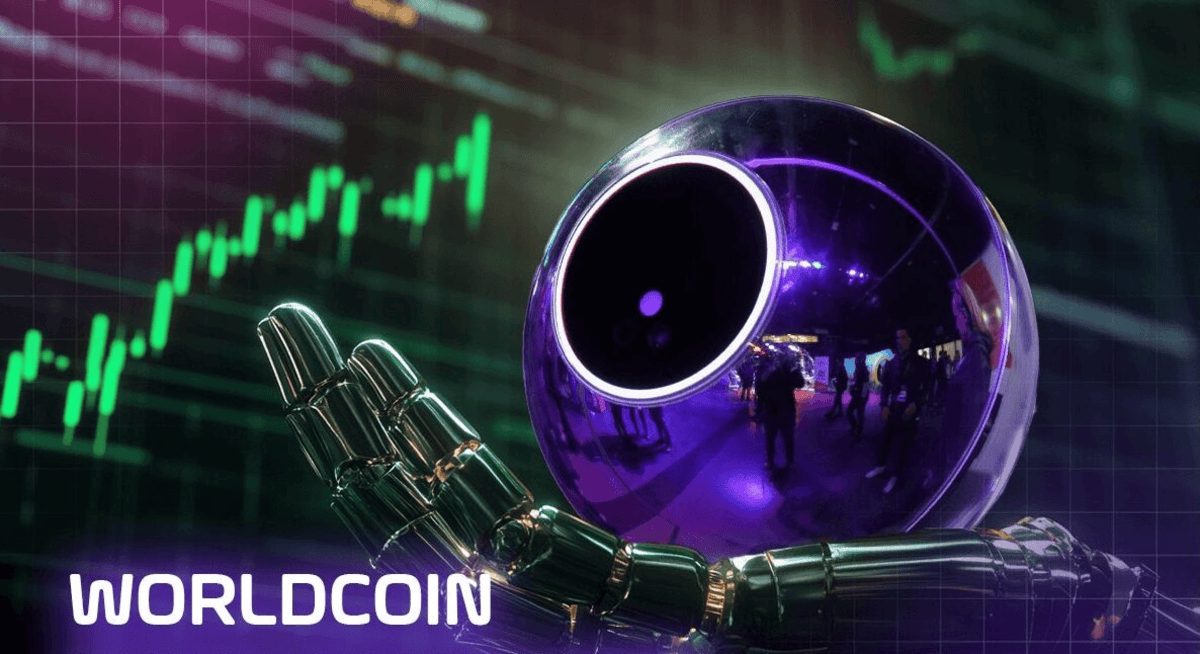Worldcoin Rockets with Two Hundred Seventy Million Dollar Backing
Worldcoin Rockets with Two Hundred Seventy Million Dollar Backing
By
Leah Rosenfeld
Last updated:
September 10, 2025
First Published:
December 2, 2025

Photo: Crypto News
Worldcoin, the digital identity project co founded by Sam Altman, has surged to the center of the cryptocurrency spotlight following a two hundred seventy million dollar investment from the firm Eightco. This development has not only boosted its token value but also reignited debate about the intersection of blockchain, artificial intelligence, and biometric identity verification.
A project built on identity
Unlike most cryptocurrencies that focus on payments or decentralized finance, Worldcoin has carved its niche around digital identity. The project’s vision is to create a global system where every individual can prove their uniqueness through iris scanning technology, enabling fair distribution of tokens and secure interaction in digital economies. The idea is both ambitious and controversial, but its rise reflects growing demand for new ways to establish trust online.
Why investors are betting big now
Eightco’s two hundred seventy million dollar backing demonstrates a strong vote of confidence in the project’s future. Investors are increasingly drawn to tokens tied to artificial intelligence and digital identity because these themes are becoming central to the next wave of technology. With growing concerns about deepfakes, bots, and online fraud, a blockchain anchored in human uniqueness has clear appeal for those betting on long term infrastructure solutions.
Market response to the investment
The funding announcement triggered a sharp increase in Worldcoin’s market activity. Trading volumes spiked across major exchanges, and its token price gained significant momentum. This reaction highlights how institutional capital can accelerate adoption, not only by providing financial resources but also by strengthening credibility in the eyes of retail investors. For many, the Eightco investment signaled that Worldcoin has crossed from experimental concept into a project with serious backing.
The role of AI in fueling interest
Another reason for the surge is the connection between Worldcoin and artificial intelligence. Sam Altman’s involvement, as the head of OpenAI, has tied the project to broader narratives about AI reshaping economies and societies. By linking identity with AI driven environments, Worldcoin positions itself as a tool for ensuring fairness in an increasingly automated world. This narrative resonates strongly with investors who see the convergence of AI and blockchain as one of the most promising frontiers.
Challenges and controversies ahead
Despite its growth, Worldcoin continues to face challenges. Concerns about privacy, data storage, and surveillance remain prominent. Critics argue that tying biometric data to a financial system could create risks if not handled with absolute care. Regulators may also scrutinize how the project operates across different jurisdictions, especially as adoption spreads. These hurdles will test whether Worldcoin can balance innovation with security and ethical responsibility.
What Worldcoin’s rise means for the industry
The surge of Worldcoin shows how identity and trust are becoming central themes in the crypto market. If the project succeeds, it could inspire a wave of identity focused blockchain initiatives and set a precedent for how biometric verification interacts with decentralized finance. For the industry as a whole, Worldcoin’s growth marks a shift toward solutions that tackle real world problems, moving beyond speculative narratives into the realm of structural digital infrastructure.
Popular articles
Subscribe to unlock premium content
Disney’s Timeless Magic and How the Entertainment Giant Continues to Shape Culture and Innovation

Imran Khan’s Economic Missteps Amid Political Chaos in Pakistan

The Philippines’ Digital Shift How Remittances and BPO Are Fueling Growth

Disney’s Timeless Magic and How the Entertainment Giant Continues to Shape Culture and Innovation

Imran Khan’s Economic Missteps Amid Political Chaos in Pakistan

Disney’s Timeless Magic and How the Entertainment Giant Continues to Shape Culture and Innovation









